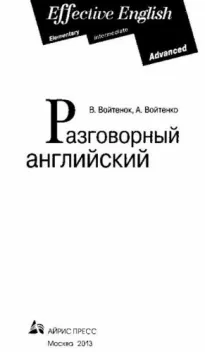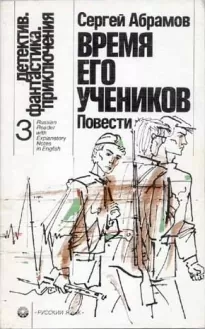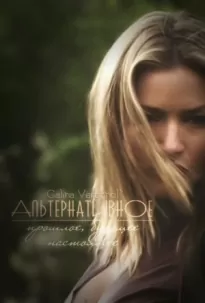Разговорный английский

- Автор: Владимир Войтенок
- Жанр: Самиздат, сетевая литература
Читать книгу "Разговорный английский"
джентльменски.
I did feel cheap.
Я и вправду почувствовал себя неловко.
What will come of him?
Что же из него выйдет?
He’s full of conceit.
Он очень высокого мнения о себе.
He has common manners.
У него грубые манеры.
He is beyond (out of) control.
Он вышел из повиновения.
He has got out of hand
Он совсем отбился от рук.
altogether.
He’s unmanageable (out of
С ним нельзя сладить.
hand).
What a daredevil he is.
И какой же он сорвиголова.
384
He is so disobedient that I don’t know what to do with him.
Он такой непослушный, что я не знаю, что с ним делать.
He is keeping bad company.
Он водится с плохой компанией.
I must teach him manners.
Я должен научить его как вести себя.
What an object you have made
На кого ты похож? Ты такой
of yourself? You are so dirty!
грязный!
He is full of mischief.
Он бедовый.
He’s of unexceptionable con
У него безукоризненное по
duct.
ведение.
You are carrying it too far.
Вы зашли очень далеко.
See what it is to be naughty?
Вот видишь, что значит не слушаться?
You keep within limits or —.
Держи себя в рамках приличия или ...
It is too bad of you.
Это очень нехорошо с Вашей стороны.
It doesn’t become of you to —.
Не подобает Вам...
You are always the same. (You
Вы все такой же. (Вы остае
never change.)
тесь самим собой.)
I find your behaviour unsuffer-
Я нахожу Ваше поведение
able.
несносным.
Don’t you think you are in want
Вы не считаете, что Вам нуж
of manners?
но научиться себя вести?
Your conduct was so out of
Ваше поведение было таким
place that —.
неуместным, что...
Will you please let me decide
Позвольте мне самому судить
my own conduct.
о своем поведении.
And you are always butting in
Ты всегда лезешь туда, куда
where you don’t belong.
тебя не просят.
His looks and manners would
Его внешность и манеры
almost disarm any suspicion.
способны рассеять любые подозрения.
He is always in the manner of
Он всегда собирается что-то
going to do and never doing.
делать и никогда не делает.
I wonder why she gets her ears
Интересно, почему она с
back when she sees me.
такой злостью смотрит на меня, когда я с ней встречаюсь.
I feel I kind of overstepped my
Похоже, что на этот раз я
self this time.
позволил себе лишнее.
I tried to make the best of an ackward situation.
Я пытался замять неловкость.
385
He always went about with his
Он всегда ходил важно, витая
head in the air and his mind
мыслями в облаках.
in the clouds.
He tried to laugh off the remark.
Он пытался отделаться смехом.
What ails you that you shout so?
Что случилось, что ты так кричишь?
I very often became the object
Я очень часто становился
of her passions of anger and
предметом ее чувств —
fondness, which succeeded
злости или нежности, ко
each other several times a
торые сменяли друг друга
day.
по нескольку раз в день.
He is always in extremes.
Он всегда впадает в крайности.
There are degrees in everything.
Во всем есть мера. (Знай меру.)
Let her have her way.
Пусть она делает по-своему (как хочет).
Being addressed he tried to look
Когда к нему обратились, он
“nobody”.
сделал вид, что это его не касается.
I must entreat you to be
Я умоляю Вас быть благора
reasonable.
зумным.
Don’t you think you are some
Вам не кажется, что иногда
times too much for my
Вы слишком играете у ме
feelings?
ня на нервах?
A. Is it a caprice?
А.: Это каприз?
B. It’s anything you like.
Б.: Понимайте, как хотите.
He has adapted himself to me.
Он приспособился ко мне.
Don’t take the words out of my
Не перебивайте меня.
mouth.
I shall do whatever I want as the
Я буду поступать, как мне
humour pleases (strikes) me.
заблагорассудится.
He sat as good as gold.
Он сидел паинькой.
He was overpoweringly polite.
Он был чрезвычайно (до тошноты) вежлив.
He tried to look as meek and
Он старался выглядеть та
undesirous of notice as a cat
ким кротким и незамет
with cream on his whiskers.
ным, словно кошка, которая знает, чье масло съела.
I don’t know what may hap
Я не ручаюсь за себя, если
pen if I am carried beyond
выйду из терпения.
myself.
But that doesn’t follow that I
Но из этого не следует, что я
have to do likewise.
должен делать то же самое.
She was the talk of the yard.
Она была у всех на языке.
Supplement
I. Man and His Family
1. NAME
The following table presents different variants of the English equivalents for the Russian:
Имя — Name, first name, Christian name
Отчество — Patronymic, middle name
Фамилия — Surname, second name, family name
Гражданство, подданство — Citizenship.
While answering the question What is your name? one is expected to give his name in full.
e. g. What is your name? — John D. Barter.
D. here stands for the so called middle name.
The two or more initials standing before a foreign name do not at all denote the name and patronymic as in Russian. In Western Europe and America children may be given more than one name and the number may vary. As a rule, the first of these names (known as the first, or Christian name) is chosen from among the numerous generally recognized names such as John, Mary, etc. The second name (known as the middle name) is not actually a name from the point of view of the Russian language. The middle name may not only be a conventional name, but the mother’s maiden name, or the surname of any person honoured in the family or the godparent of the child. The middle name may also be any word, even the combination of sounds having no meaning whatsoever, but which, for some reason, appealed to the parents. In the United States, as a rule, the Christian name is written out in full, while the middle name is abbreviated or not written at all. Therefore when making a person’s acquaintance one might ask, “What is your middle name?”
The last link in the chain of names is the surname, last name, or simply, name.
Examples:
(a) Simplest case without middle name:
Michael Faraday, John Galsworthy.
(b) Middle name taken from the category of Christian names: Gerbert George Wells, Robert Louis Steuenson.
(c) First name and middle name represent the name and surname of the person in whose honour the child is named:
Andrew Jackson Tozer.
(d) No conventional Christian name at all, first name is recognized surname:
Washington Irving.
(e) Word used as middle name:
William Makepeace Thackeray.
(f) Only name is name of lake where parents met:
Rudyard Kipling.
A chain of four names is usually found in two cases:
(a) Christian names grouped together:
Cecil Eric George Reyford.
(b) Middle name chosen is the Christian name and surname of a person held in respect in the family:
Henry George Washington Clinton.
One should note the following feature of family relations in the West European countries.
When Miss Mary Smith maries Mr. John Brown, she becomes Mrs. Brown. Miss Ada Quist marries Mr. Bert (Albert) Tozer and becomes Mrs. Bert Tozer. In the third person she might be referred to as Mrs. Tozer but that would lead to the danger of confusing her with Mrs. Tozer, her mother-in-law, who, as the older woman, has first right to this title. In addressing them Mrs. Tozer may be used for both. In informal talk and casual conversation the daughter-in-law might be called Mrs. Bert.
Translated and adapted from Commentary to “Arrowsmith” by Sinclair Lewis, by E. Dragunova and G. Krasnoshchekova.
2. ON NATIONALITY
“Are you an Englishman?”
“No, I am not. Can’t you hear it from my accent?”
“I did not notice it. What country do you come from?”
“I am from France.”
“What part of France do you come from?”
“I was bom in Paris and brought up in Le Havre.”
“How long have you been in England?”
“About twenty years.”
“And how old are you?”
“I am hard on thirty.”
“Then you are almost naturalized. No wonder (that) you speak English like an Englishman.”
“Thank you.”
“And do you know your mother tongue?”
“I do. I can speak French with as much ease as I do English.”
“You are here with your parents, I suppose?”
“No, I live here with a relative of mine — a relative on my mother’s side.”
“And your parents? Are they in France?”
“Yes. They live not far from Le Havre.”
“Do you descend from a peasant family?”
“No, my father is a small tradesman.”
“Have you any brothers and sisters?”
“Oh, yes. Our family is quite a big one; there are five of us.”
“Do you often go to France?”
“Now and then.”
“Well, and how do you like England?”
“I like it exceedingly.”
“1 dare say you like France better, don’t you?”
“Of course.”
“Yes, that is quite natural.”
3. APPEARANCE
(Two young people, George and Ann, meet after a lapse of some eight years.)
GEORGE. Did you receive my letter, Ann?
ANN. Yes, I did.
G. I wished to see you very much, Ann. I hope you will not be displeased with me.
A. No, I’m very glad to meet you. It’s a long time since we have met last.
G. It is, indeed. I think it’s about eight years, isn’t it?
A. It must be eight, I think.
G. You have changed, Ann.
A. Have I?
G. Yes, a great deal.
A. Am I like what you expected me to be?
G. No, Ann. You are much more beautiful than I thought you would be.
A. Am I?
G. Yes. But do you know, last night I was trying to fancy you as a —.
A. Not a fat, blonde girl, with round blue eyes and pigtails dangling down at the back of my head?
G. No, Ann, but as a tall girl with a mop of hair tied up in a bundle, with rouged cheeks —.
A. Oh, yes! That’s just like me, isn’t it? You must have seen me before you came here!
G. No, indeed I was only guessing.
A. Well, go on. You are describing me so well.
G. And do what I would, Ann, those pigtails of yours would come back as the only right thing for you.
A. Well, and now do you like my “mop of hair and rouged cheeks?” You have hit so exactly on my appearance, haven’t you?
G. Oh, Ann, don’t jeer at me. You can’t imagine how glad I am to be mistaken. Your fair heavy braids are —.
H. You know, George, when I got your letter yesterday, I also tried to fancy you.
G. And is there any likeness between me and what you fancied?
A. Yes, and a very striking one, I should say.
G. Well, how did you fancy me?
A. I won’t tell you. At least, not now.
G. When?
A. Sometime later.
4. ENGAGEMENT AND MARRIAGE
At the age of 21, persons of both sexes in England come of age. Boys and girls are permitted to become “engaged” or betrothed, when still in their “teens”. A boy can, with his parents’ consent, propose to a girl and then marry her before he is twenty-one years of age. As a pledge of good faith he presents his bride-elect with an engagement ring, which is worn on the third finger of the left hand.
In ordinary speech, a man who is engaged, but not yet married to a lady, when speaking of her, will say: “My intended,” or “My fiance.” The young lady, on a similar occasion, will say the same.
Generally, English girls receive no marriage portion (weddingdower) on marrying, as a man is obliged to maintain his wife and children himself.
On the day of the wedding, the bridegroom and bride with the best-man and bride’s-maids, family and friends, go to church for the wedding service. There they are joined in matrimony by the
clergyman, who slips a wedding-ring on the bride’s ring-finger. This ring she wears for the rest of her life.
When the ceremony is over, all go back to the house, where the lady has been living, to the wedding-breakfast. The prominent feature of the wedding-breakfast is the highly-decorated “wedding-cake.” After the guests have drunk the bride’s and bridegroom’s healths, the happy newly-married couple take leave and depart on their honeymoon or to their new home.
According to an old English custom, they get pelted, at the moment of leaving the room, with handfuls of rice or with old shoes and slippers, which is supposed to bring them good luck.
5. A FAMILY
When two persons are married, the man is called the husband; the woman becomes his wife. When a child is bom in the family, the father and mother of the child are called parents. A family generally consists of a father, a mother and children — sons or daughters or both. The first bom child is the eldest, the last bom — the youngest. Two children that are bom together are called twins.
The father and mother of the husband become the father-in- law (in law — by marriage), and mother-in-low of the wife. The husband is the son-in-law; the wife — the daughter-in-law; they have brothers-in-law and sisters-in-law.
The other members of the family are the relatives or relations: uncles, aunts, cousins, etc.
The brothers and sisters of any of the parents become the uncles and aunts of the children. The children of two married brothers or sisters or brother and sister are cousins to each other.
In case of a second marriage, we speak of a step-father or a step-mother, step-son, step-daughter, etc.
IL Meeting People
1. ON WEATHER
P. Hello, Nick! Where have you been hiding all this time?
N. I? I was on vacation down south.
P. Really! Enjoyed the time?
N. Half and half.
P. What do you mean by half and half?
N. Because of the weather, you know.
P. What was it like there?
N. Changeable. During the first 10 days we had all kinds of weather varying from clear, bright days to rain and cold.
P. And later?
N. And later it improved. We had a spell of fine weather for, at least, a fortnight.
P. Bathed in the sea? Where were you, by the way?
N. No, I happened to be in the country this year.
P. Oh, you get less fun in the country than at the seaside, don’t you?
N. Well, in some respects, yes, but on the other hand you have the river, the woods, the —.
P. Went about hunting?
N. Not much. On the eve of my departure we did a bit of rabbiting and got caught in the rain. I was wet like a drowned cat.
P. You should have taken an umbrella.
N. And be the laughing stock of the village, eh?
P. I was just joking, Nick.
N. Well, and how was it here?
P. The weather, you mean?
N. Yes.
P. On the whole it was all right. Rather snappy in the morning ... you don’t forget that it’s autumn now.
N. Oh yes. I feel it right now. Should have taken my overcoat ... brrr —. Better get going. Well, see you by and by.
P. So long.
2. A MEETING





